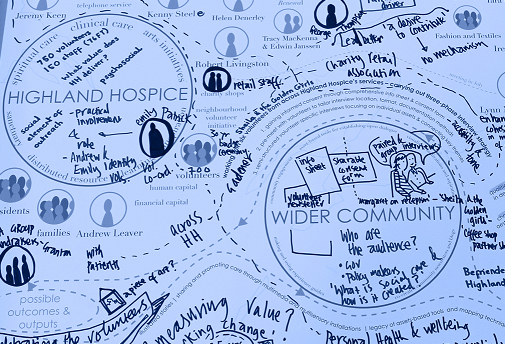
Flourish: Personhood and Collective Wellbeing
Through creative and participatory design inquiries, this programme aimed to give voice to invisible communities, by working together with practitioners and professionals, including doctors in primary and secondary care, clinicians, chaplains and social care professionals amongst others to address complex civic challenges. Underpinning and weaving through the Flourish project is the drive to create sustainable solutions, building a legacy of repeatable improved performance; not one off interventions, and holistically addressing the following aims and objectives:
- giving voice to invisible or challenged communities
- making these communities visible: promoting ‘hidden talent’
- considering ways in which their capabilities can be shared with others
- recognising how wellbeing can be improved and considering how this can be addressed by communities rather than recourse to professional services
- understanding how the qualities of design can contribute to enhancing the qualities of life and qualities of reflection
- contributing to wellbeing in our society
A major focus of the team's research is on ageing, dignity and end of life care and how our society can create and support wider compassionate and caring practices at the point of need. The team developed an interdisciplinary network of academics, practitioners, and policy makers throughout a series of Seasonal Seminars in Glasgow and Forres to together consider ways to elicit, capture, and communicate such community narratives and to demonstrate how wellbeing can or could thrive.